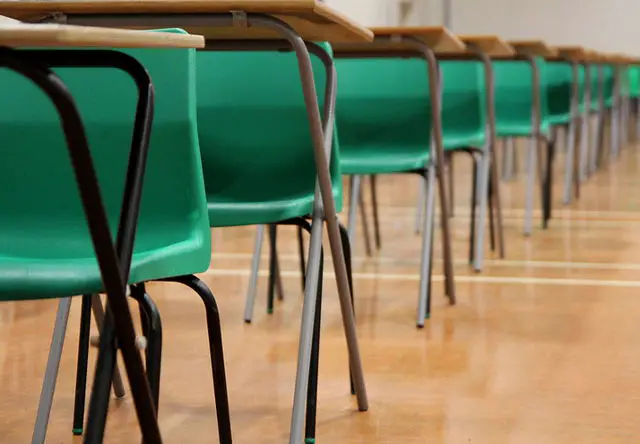Students on the Isle of Wight who were facing exams in the coming months can breathe a sigh of relief — as Ofqual announce how exams will be marked.
Education Secretary, Gavin Williamson MP, cancelled end-of-year GCSEs, AS and A levels as well as other qualifications, in March, in an ‘unprecedented step’ to stop the spread of Coronavirus (Covid-19).
Mr Williamson said:
“My priority now is to ensure no young person faces a barrier when it comes to moving onto the next stage of their lives – whether that’s further or higher education, an apprenticeship or a job.”
How grades will be determined
Now, the Office of Qualifications and Exam Regulations (Ofqual), has revealed the way grades will be calculated.
Grades will be determined through two pieces of information sent from schools or colleges — a student’s predicted grade if teaching, learning and exams had gone ahead as planned and, within each subject, a rank order of students by predicted grades in each school.
Other considerations
A range of work will be considered to work out predicted grades, including class and homework, results in assignments and any mock exams as well as general progress made during the course.
There is no requirement in the grading for new work to be set for students or for work to be included in the marking if it was set or completed after schools were closed on 20th March.
Ofqual has said grades will not need to be submitted before 29th May and centres will have at least two weeks in which to submit the data.
Providing ‘certainty’ for pupils
Along with exam boards, Ofqual will standardise grades and judgements across the board, with the hope to publish grades when they are expected in August, if not a little earlier, so students can have the ‘certainty they need’.
Students who feel their grades from the summer do not reflect their ability will have the opportunity to take their exams in the autumn or in summer 2021 — if they choose to do this, both grades will stand.
News grades will have equal status
In a letter to students, Sally Collier, chief regulator of Ofqual, said the aim of the new measures was to be fair to students and to make sure they were not disadvantaged in their progress because of the unprecedented conditions.
She said:
“Please be reassured the grades you get this summer will look exactly the same as in previous years, and they will have equal status with universities, colleges and employers, to help you move forward in your lives as planned.”
Teachers and schools will not be allowed to share with students the grades they have sent to Ofqual.
Shreeve: Teacher assessment is just as reliable and stable
Peter Shreeve, assistant district secretary of the National Education Union, said:
“At first glance this information is positive and should go a long way to calm student concerns and clarify much.
“We are pleased the Department for Education and Ofqual both recognise the professionalism of teachers in awarding exam grades this summer.
“Teachers are subject experts and are taught during their training how to assess students in a variety of ways during lessons.
“Exams are not the only way to assess someone’s ability — in fact, research shows that teacher assessment is just as reliable and stable.
“It is unquestionably right that teachers’ grade judgements should be based on work which was done before institutions shut down — anything else would be unfair.
“No qualifications system, including one based on exams, is perfect for each individual involved. However, it is important for students’ sake that their grades have value, so we must work as a sector to make it as fair and consistent as it can be.
“Teachers are dedicated, ethical, highly-trained professionals with expertise in their subject – both teaching and assessing it – and with the right support and backing from all involved, will absolutely rise to this challenge.”
Government Covid-19 guidance: Stay alert and stay safe
Wash your hands thoroughly and frequently (video tips).
Social distancing
It is recommended that you maintain at least a two metre gap (about 6.5ft) from people who are not from your household.
Seeking advice
Use the NHS 111 online coronavirus service that can tell if you need medical help and advise you what to do.
This article is from the BBC’s LDRS (Local Democracy Reporter Service) scheme, which OnTheWight is taking part in. Some alterations and additions may be been made by OnTheWight. Ed
Image: comedynose under CC BY 2.0





